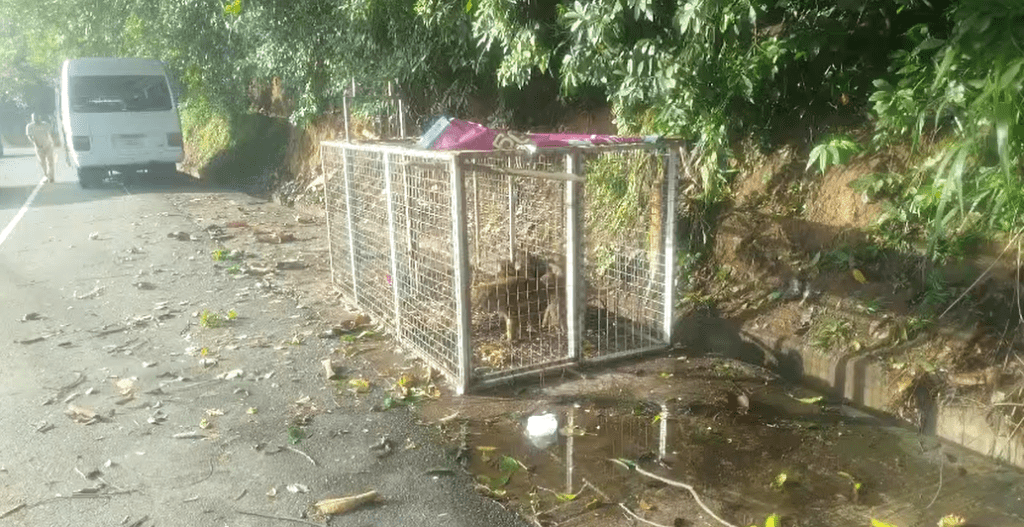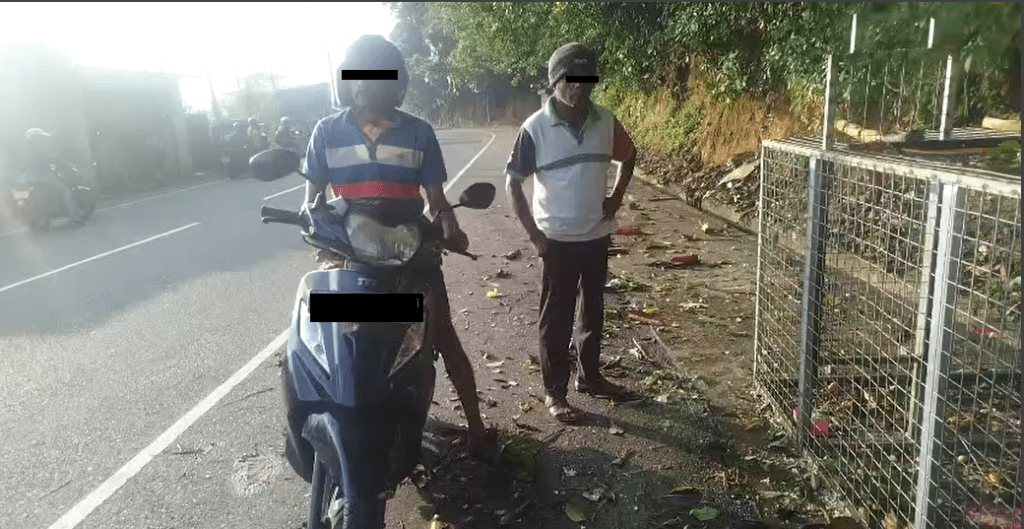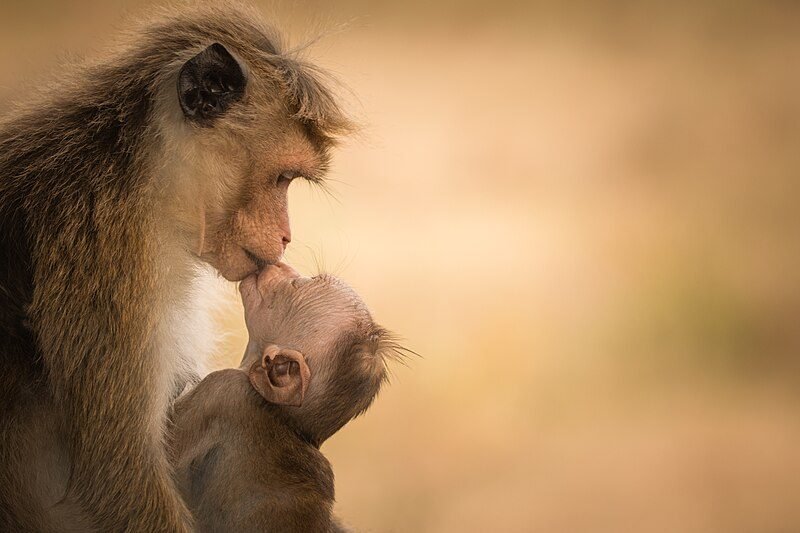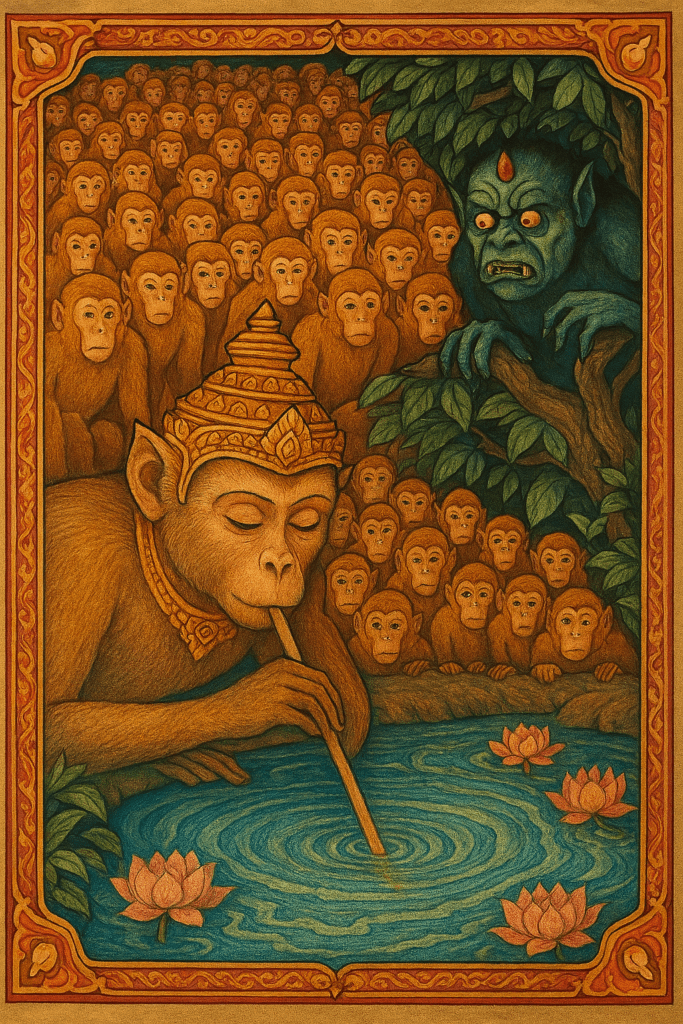
On the morning of 9 October 2025, a disturbing incident unfolded at Dharmasoka Mawatha, Arupola, Kandy, raising urgent questions about animal welfare, civic safety, and constitutional accountability in Sri Lanka. Mrs. D. Hearath, a concerned citizen and practicing Buddhist, was riding past the area when she witnessed a group of monkeys confined at the roadside without food, water, or visible care. Cages were present, the animals were clearly restricted and in distress. Eyewitnesses later confirmed that the monkeys were crying like babies, and some villagers had tried to feed them out of compassion.
What struck Mrs. D. Hearath most was the emotional behavior of the monkeys themselves, reaching out to comfort one another as if supporting their own community in fear. Moved by this suffering, she began filming the scene on her mobile phone, hoping to raise awareness and alert authorities. During the recording, a man entered the scene. Mrs. Hearath attempted to engage him to understand more about the group responsible for the monkeys. Instead of responding appropriately, he became hostile. He grabbed her phone and struck her, leaving her injured and traumatized. She is currently receiving treatment at Kandy Hospital. The video she was recording may contain crucial evidence of both the animal cruelty and the assault.

When Mrs. D. Hearath explained she was acting to protect animal rights, the man demanded to see her ID card. This demand is not only unjust, it is legally irrelevant. Under Sri Lankan law, no citizen is required to belong to any organization or social group to question or report cruelty toward animals. The right to speak out is protected by law. This incident is a direct violation of the Sri Lankan Constitution, including Article 9, which affirms the protection of Buddha Sasana and the values of compassion and non-violence; Article 10, guaranteeing freedom of conscience; Article 12, ensuring equality before the law; and Article 14, protecting freedom of expression. It also breaches the Sri Lankan Animal Welfare Act and Mrs. Hearath’s fundamental rights as a citizen.
The monkeys Mrs. D. Hearath tried to protect are not only sentient beings, they are endangered. The Toque macaque (Macaca sinica), known locally as “Rilawa,” is listed as Endangered on the IUCN Red List. Over the past 40 years, their population has declined by more than half due to habitat destruction and human persecution. These animals are not pests, they are part of Sri Lanka’s ecological heritage. Every act of compassion toward them is also an act of conservation.

Toque macaques are present and frequently encountered in Kandy, particularly around areas like the Kandy Lake and the Royal Botanical Gardens, Peradeniya. Known locally as “Rilawa,” these small, golden-brown, endemic Sri Lankan monkeys hold a unique place in both the island’s biodiversity and cultural consciousness. Their presence in urban and sacred spaces reflects a long-standing coexistence with humans, one now threatened by shifting policies and public perception.
The Dharmasoka Mawatha incident is not isolated. It reflects a broader and troubling trend in Sri Lanka’s treatment of primates. In March 2025, the government conducted a controversial five-minute nationwide “rapid visual census” of crop-damaging wildlife. The survey estimated 6.5 to 7 million monkeys, a figure widely criticized by conservationists as scientifically implausible and methodologically flawed. In June, authorities removed all three native monkey species from Sri Lanka’s protected list, alongside peafowl and wild boars. This legal deregulation effectively allowed unrestricted culling, raising alarms among environmentalists. Following a nationwide power outage caused by a monkey in February, the government proposed exporting over 100,000 macaques to China. Though the plan was later shelved after public outcry, it revealed a growing institutional appetite for mass removal of primates without transparent ecological or ethical review.
These developments suggest a climate of hostility and misinformation around wildlife, where monkeys are increasingly framed as pests, and citizen interventions like Mrs. Hearath’s are met with aggression rather than support. Authorities must urgently answer key questions: Where are the monkeys now? What has been done with them since the incident? Who took custody, and under what authority? If any attempt has been made to release, relocate, or remove the monkeys without proper documentation or investigation, it may constitute tampering with evidence. These animals are not just victims, they are witnesses to cruelty, and their condition must be preserved for legal review.
If this incident is linked to any government department, contractor, or affiliated organization, Mrs. Hearath is entitled to seek compensation (wandi) from the man who assaulted her and from any party responsible for the unlawful capture and mistreatment of the animals. This is not just a personal ordeal, it is a public reckoning. Sri Lanka must stand by those who act from conscience and ensure that compassion is not punished but protected.
The courage shown by Mrs. Hearath echoes the wisdom of the Nala Jātakaya, Jātaka tale number 20, where the Bodhisatta, as a monkey king, led 80,000 monkeys to safety from a water demon. By crafting a single-holed reed straw (nala), he outwitted the demon and ensured his troop could drink and survive. His ingenuity and compassion saved lives. Today, women like Mrs. Hearath embody that same spirit, using moral clarity and fearless action to protect the vulnerable. In a world where cruelty often hides behind power, it is the quiet strength of conscience that leads others to safety. Her act was not just brave, it was profoundly Buddhist, deeply civic, and unmistakably just.

Image : Nalapana Jātaka by Ceylon Watch
May the people of this country remember the wisdom of the Nala Jātakaya. In that ancient story, truth was not silenced by fear, and justice was not postponed by power. A single voice guided by compassion and moral clarity stood before a king to protect the innocent. Today, that same courage lives in every citizen who speaks out against cruelty, who defends the voiceless, and who refuses to be intimidated. Let us not forget: the strength of a nation is measured not by its silence, but by its conscience.
By Palitha Ariyarathna
